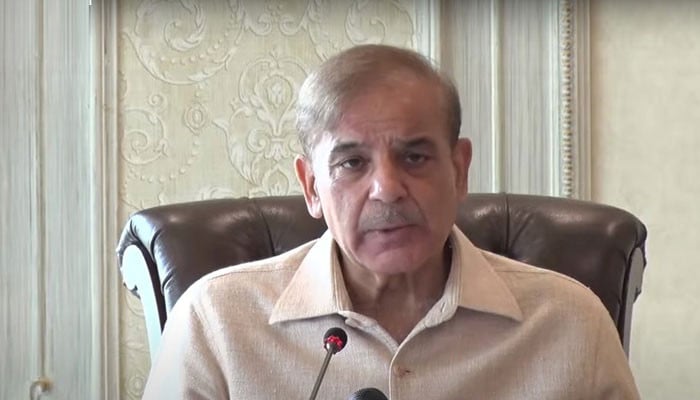ISLAMABAD: Prime Minister Shehbaz Sharif may have struck the first serious blow against the sugar mafia by tightening tax enforcement — but the cartel has hit back where it hurts most — the market.
In what appears to be a counteroffensive, sugar prices have soared in recent weeks, sparking fresh economic anxiety and testing the government’s resolve to bring the powerful lobby under control.
The prime minister, whose own family has long-standing interests in the sugar industry, has chosen to confront the very sector that wields immense political and financial clout. His public stance against the so-called “sugar mafia” has raised eyebrows and expectations alike.
But while the Federal Board of Revenue (FBR) has shown record gains in documenting sales and recovering taxes from sugar mills, the impact at the consumer level tells a different story. Sugar prices in retail markets have surged, erasing any political goodwill that might have resulted from the revenue recovery campaign. Some say the hike is no coincidence.
Former finance minister of Shehbaz’s last government Miftah Ismail, who is presently at odds with the government and PMLN, however, has an interesting statement to offer.
He is though presently critical of government sugar policy, about his own experience while working with Shehbaz disclosed that the premier didn’t succumb to sugar mafia pressure. Instead, he had privately told him not to allow sugar export. “I didn’t think prime minister was greedy for money and in fact he told me to put a supertax on sugar industry — I was opposed to supertax, but of course the prime minister prevailed,” Miftah told The News.
In a written statement over the present sugar situation and whether the premier will win or lose in the present fight against the sugar mafia, he said, “When I was finance minister under Mian Shehbaz Sharif, there was also a question of allowing exports of sugar. And we really needed foreign exchange at the time. But although the prime minister met with all the people who wanted exports, he privately told me not to allow exports. And then Tariq Bashir Cheema was made the chairman of the sugar export committee and he too challenged the figures given by the sugar industry and wanted figures verified by commissioners. In short, Cheema was no pushover and he wasn’t going to allow exports under pressure.
About the present situation, Miftah said, “This time of course Musadik Malik was replaced by Ishaq Dar as chairman of the sugar export committee. It was okay to allow export of perhaps 100,000 tons, and once the prices started to climb rapidly, the permission to export should have ended. But this time it seems the idea was to increase the price and they kept allowing exports even as the prices were rising.”
On the other side, the government when approached told The News that the government’s tax enforcement campaign against sugar and other industries has produced extraordinary numbers. In the sugar sector, documented sales rose from Rs107 billion to Rs152 billion within a year — a 41 percent jump — after the FBR deployed physical monitoring teams, track-and-trace systems, and video surveillance at production sites. An estimated Rs57 billion tax gap was narrowed through these efforts, said the government sources.
The sources added that similar crackdowns across other industries — cement, tobacco, beverages, and hatcheries — also yielded sharp increases in declared revenue. The tobacco sector saw a 103 percent rise, cement doubled, and beverages improved by 23 percent. Even poultry hatcheries showed a 50 percent jump in just one month.
Collectively, the official sources informed, these gains helped lift Pakistan’s tax-to-GDP ratio from 8.8 percent to 10.3 percent in a single fiscal year. FBR reports that 15 percent of the year’s tax revenue growth came solely from enforcement, with only 7 percent linked to real economic expansion or inflation.
Independent sources say that the sugar cartel’s apparent counterstrike through price manipulation has exposed the deeper battle — one not just of tax receipts, but of state writ versus entrenched market power. Despite visible enforcement gains, the government is now struggling to rein in sugar prices, which have soared beyond the purchasing power of many ordinary Pakistanis.
“This is classic pushback,” said a source, adding, “They’ve been forced to pay taxes, so now they’re extracting that money back from the people through the market.”
It is believed that the prime minister now faces a political and economic dilemma. If the government backs down under pressure, the message will be clear: no matter the data, the cartel still controls the market. But if the state sustains its pressure and manages to bring prices under control, it would mark a rare moment of victory over the most powerful sugar industry.
According to a source, the largest sugar producer in the country is the JKT (Jehangir Tareen) group and has about 15% market share. It is followed by Omni group that probably owns about 12% of the country’s production. Industries minister Haroon Akhtar owns a large sugar mill, Shehbaz Sharif’s family own two mills, Nawaz Sharif’s family owns one, and then various other people, influential in all three major parties, own sugar mills. It is the most powerful lobby in Pakistan. The source said that Sharifs’ share in the sugar industry is small.
A senior FBR official told The News that Prime Minister Shehbaz Sharif has monitored this sugar situation through weekly meetings. “From the very first day, his emphasis was that any tax evasion in sugar sector will not be tolerated even if someone in his family was caught in the process,” said that source adding that this year the FBR’s monitoring of sugar stocks, production and sales was not only watched continuously by PM himself but he also instructed IB, FIA and other agencies to do continuous monitoring of sugar business and performance of FBR personnel.
